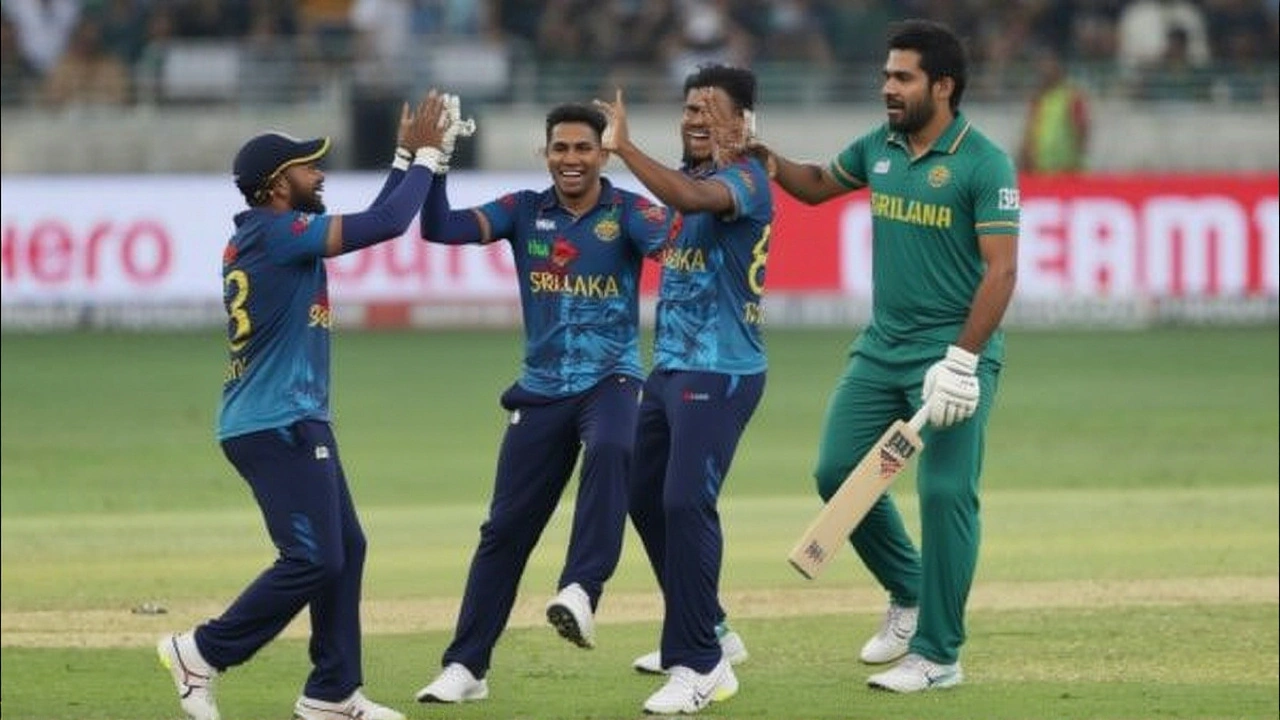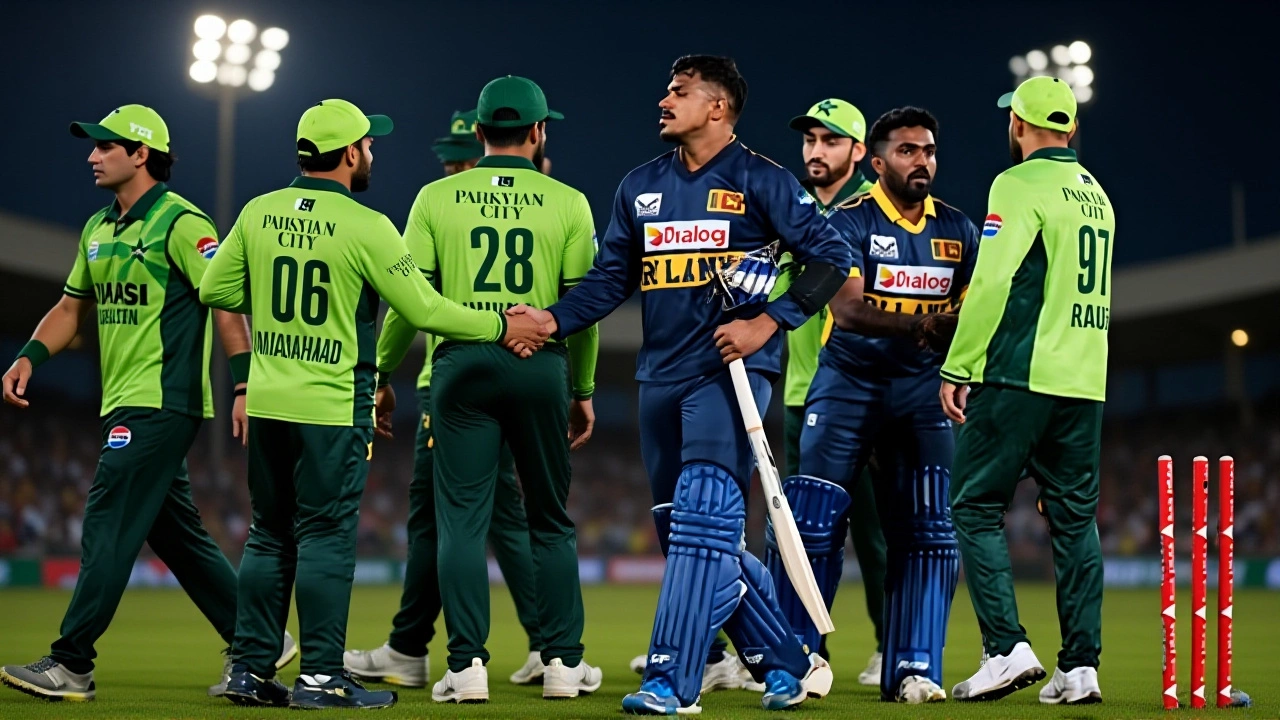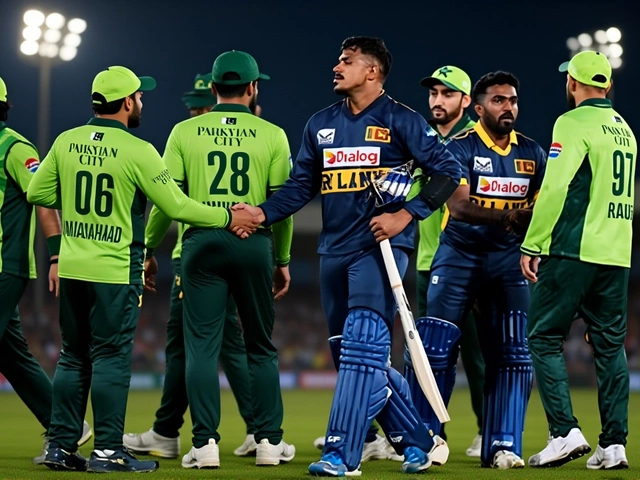When Pakistan Cricket Board announced the resumption of international cricket in Pakistan, few expected it would be tested so violently — and so soon. On November 12, 2025, a suicide bombing in Islamabad killed 12 people and injured dozens, just hours before the second One-Day International between Pakistan and Sri Lanka Cricket. The blast occurred barely 10 kilometers from the Sri Lankan team’s hotel. In the shockwave that followed, eight players made the decision to fly home. But then, something unexpected happened: Field Marshal Asim Munir, Chief of Army Staff, personally intervened.
The Moment the Tour Almost Collapsed
The bombing, claimed by a splinter faction linked to Tehreek-e-Taliban Pakistan, sent ripples of fear through the Sri Lankan camp. Players had already been uneasy since arriving. The first match in Rawalpindi, won by Pakistan by six runs on November 11, had been tense. But the Islamabad attack changed everything. With security alerts flashing and media speculation mounting, Sri Lankan officials confirmed on November 13 that eight players had booked flights back to Colombo. The second ODI — scheduled for the same day in Rawalpindi — teetered on cancellation. The third match, set for November 16, was in limbo. And with Zimbabwe’s team already in Pakistan for the upcoming triangular T20 series, the entire cricketing calendar hung in the balance.How the Army Chief Stepped In
Here’s the thing: no one expected the army chief to get involved in a cricket tour. But Field Marshal Asim Munir did. He called Sri Lanka’s Defense Secretary and Foreign Ministry officials directly. Not through intermediaries. Not via diplomatic channels. He spoke to them — in his own voice — assuring them that Pakistan would deploy its most elite security units to protect the team. Within hours, the Pakistani military’s Pakistan Cricket Board confirmed that an armed contingent from the Frontier Corps would accompany the Sri Lankan squad everywhere — hotels, training grounds, even the team bus. No one would be left unguarded. Mohsin Naqvi, Pakistan’s Interior Minister and Chairman of the Pakistan Cricket Board, told the Senate: “The Field Marshal didn’t just offer reassurance. He gave them his word.” Naqvi added that the Sri Lankan players had been skeptical — until they saw the armored vehicles, the snipers on rooftops, the plainclothes officers blending into crowds at the hotel lobby. “They didn’t believe in promises,” he said. “They believed in presence.”A Ghost from 2009
This wasn’t just about one tour. It was about healing a wound that never fully closed. On March 3, 2009, a convoy carrying the Sri Lankan team through Lahore was ambushed by gunmen near the Gaddafi Stadium. Six Pakistani police officers and two civilians died. Six Sri Lankan players were wounded — including captain Mahela Jayawardene and spinner Ajantha Mendis. The attack, orchestrated by TTP militants, led to a decade-long exile for international cricket from Pakistan. Matches were moved to the UAE. Tourists avoided the country. The sport became a symbol of fear, not passion. Now, nearly 17 years later, the ghosts of Lahore were back. But this time, the response was different. In 2009, the government was reactive. In 2025, it was proactive. And the difference? Leadership.
Why This Matters Beyond Cricket
The decision by Sri Lanka to stay wasn’t just about security. It was about trust. And trust, once broken, is harder to rebuild than stadiums. By keeping the tour alive, Pakistan signaled to the world that it was serious about normalizing its global image. Zimbabwe’s team, already in the country, confirmed they would stay. The third ODI was rescheduled to November 18. The triangular T20 series would proceed as planned. And for the first time since 2015, a foreign team played a full series in Pakistan without fleeing. Cricket analysts say this could be the turning point. If Sri Lanka, a nation that has seen its own share of terror, feels safe enough to stay — then Australia, England, India, even South Africa may soon follow. The economic stakes are huge: tourism, broadcasting rights, sponsorships. But more than that — it’s about dignity. Pakistan doesn’t want to be remembered only for its past. It wants to be remembered for how it overcame it.What’s Next?
The second ODI was played on November 18 in Rawalpindi, with Sri Lanka winning by seven wickets. The third match, on November 20, ended in a tie. The players shook hands, hugged, and posed for photos — not as adversaries, but as survivors of a shared moment. The Pakistan Cricket Board has already invited England for a full tour in early 2026. India, too, is reportedly considering a limited-overs series. But the real victory? It wasn’t the matches. It was the fact that when fear came knocking, the army chief didn’t hide behind protocol. He answered the door.Frequently Asked Questions
Why did Sri Lankan players initially want to leave Pakistan?
The November 12, 2025 suicide bombing in Islamabad, which killed 12 people and occurred just 10 kilometers from their hotel, triggered immediate safety concerns. With the memory of the 2009 Lahore attack still fresh, players feared a repeat. Eight players formally requested to return home, and Sri Lanka Cricket initially supported their decision before reversing course after Pakistan’s enhanced security assurances.
What role did Field Marshal Asim Munir play in saving the tour?
Field Marshal Asim Munir personally contacted Sri Lanka’s Defense Secretary and Foreign Ministry officials, bypassing bureaucratic channels to offer direct, high-level security guarantees. He authorized the deployment of elite Frontier Corps units to guard the Sri Lankan team around the clock — a visible, unprecedented show of force that restored confidence where promises had failed.
How does this compare to the 2009 Lahore attack?
In 2009, gunmen attacked the Sri Lankan team bus in Lahore, injuring six players and killing eight others. The response was slow, and international cricket left Pakistan for nearly a decade. In 2025, the attack was a suicide bombing in the capital — a different threat, but the same fear. This time, Pakistan acted swiftly, transparently, and with visible military presence — signaling a fundamental shift in how it handles security for foreign teams.
Will other cricketing nations now feel safe touring Pakistan?
Yes — and early signs are promising. Zimbabwe stayed for the T20 series, and England has already been formally invited for a 2026 tour. India is reportedly evaluating a visit. The key factor is consistency: if Pakistan maintains this level of security for future tours, especially with high-profile teams, it could signal the full return of international cricket to the country after 16 years of isolation.
What impact does this have on Pakistan’s global image?
Beyond cricket, this moment reshapes how the world sees Pakistan — not as a nation defined by terrorism, but as one capable of overcoming it with decisive leadership. The fact that a foreign team chose to stay despite a deadly attack sends a powerful message: security can be restored, and trust can be rebuilt. It opens doors for tourism, investment, and diplomatic engagement.
Were any matches canceled during the tour?
No matches were canceled. The second ODI, originally set for November 13, was postponed to November 18. The third ODI moved from November 16 to November 20. All games were played in Rawalpindi under tight security. The triangular T20 series involving Zimbabwe also proceeded as scheduled, marking the first time since 2015 that three international teams competed in Pakistan without disruption.

